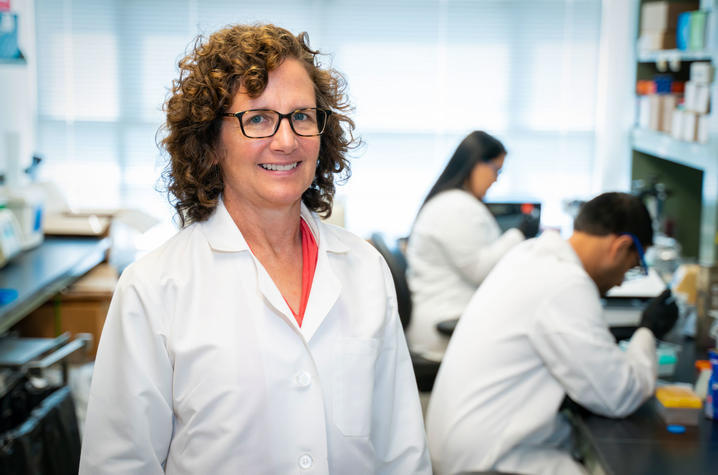UK Researcher’s Work Included in 'Best of Cell Metabolism 2020' Collection

LEXINGTON, Ky. (April 27, 2021) — Annually, Best of Cell Press celebrates the highest-impact research published in their journals during the previous year. A paper by Barbara Nikolajczyk, Ph.D., professor of Pharmacology and Nutritional Sciences and associate director for Translational Research in Diabetes at the University of Kentucky, has been included in “Best of Cell Metabolism 2020.” The paper focuses on age-associated inflammation.
Articles for these reprint collections are selected on the basis of full-text article usage as well as citation data. Ultimately the 10 most accessed articles were selected for the collection.
“This tells me there is a lot of interest in healthy aging, age-related inflammation, and diseases that epidemiologically track with age as a major factor,” said Nikolajczyk.
Age is a non-modifiable risk factor for the inflammation that underlies age-associated disease, and so drugs with the appropriate anti-inflammatory action hold promise for increasing the length of time people remain healthy, or healthspan. In the article published in June 2020, Nikolajczyk and her colleagues identified a previously unappreciated inflammatory signature that develops during healthy aging.
“People who are around 60 years old and of a healthy weight with no underlying medical conditions have inflammation with details that look a lot like inflammation that predicts obesity-associated type 2 diabetes in middle-aged people. These data raise the possibility that the metabolic decline, which often occurs with age, may be supported by naturally occurring inflammation,” she explained. The work then showed that drugs targeting age-related inflammation might stave off multiple age-related diseases including type 2 diabetes.
“Healthy aging does not mean that we will universally prevent age-related diseases. Our data suggest that the use of anti-inflammatories that are generally safe and are targeted to the inflammatory profile we have discovered may lower occurrence or severity of many age-related diseases, like type 2 diabetes, but also perhaps cancers and autoimmunity.”
Dr. Philip Kern, with UK HealthCare’s Barnstable Brown Diabetes Center and director of the Center for Clinical and Translational Sciences at UK, co-authored the article and provided clinical expertise. Others at UK who contributed include biologists Kai Jiang and Zhenheng Guo, and analysts Jing Liu, Gregory Hawk and Katherine Thompson.
Research reported in this publication was supported by the National Institute of Diabetes and Digestive and Kidney Diseases of the National Institutes of Health under Award Numbers R01DK108056 and T32DK007201, the National Institute of Dental and Craniofacial Research of the National Institutes of Health under Award Number U01DE025383, the National Center for Advancing Translational Sciences Research of the National Institutes of Health under Award Number UL1TR001998, the National Cancer Institute of the National Institutes of Health under Award Number P30CA177558, and the National Institute of Allergy and Infectious Diseases of the National Institutes of Health under Award Number T32AI08967. The content is solely the responsibility of the authors and does not necessarily represent the official views of the National Institutes of Health.
As the state’s flagship, land-grant institution, the University of Kentucky exists to advance the Commonwealth. We do that by preparing the next generation of leaders — placing students at the heart of everything we do — and transforming the lives of Kentuckians through education, research and creative work, service and health care. We pride ourselves on being a catalyst for breakthroughs and a force for healing, a place where ingenuity unfolds. It's all made possible by our people — visionaries, disruptors and pioneers — who make up 200 academic programs, a $476.5 million research and development enterprise and a world-class medical center, all on one campus.




